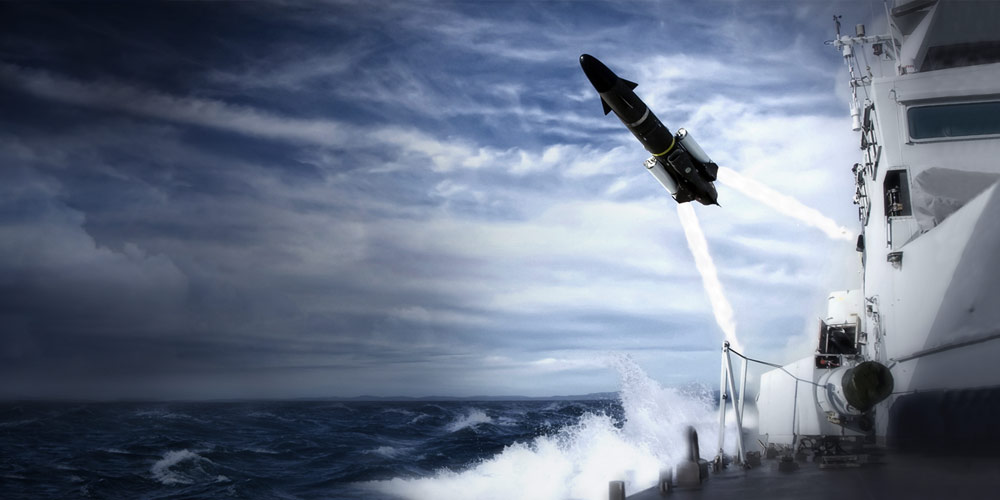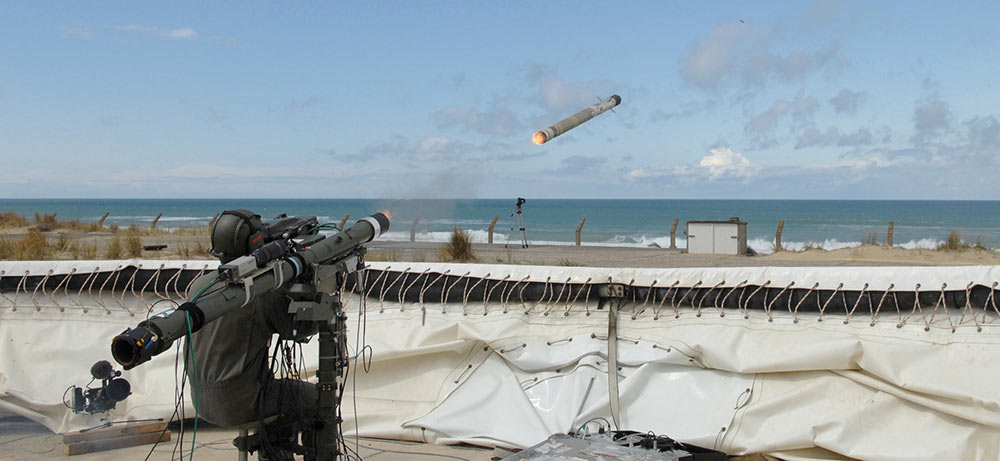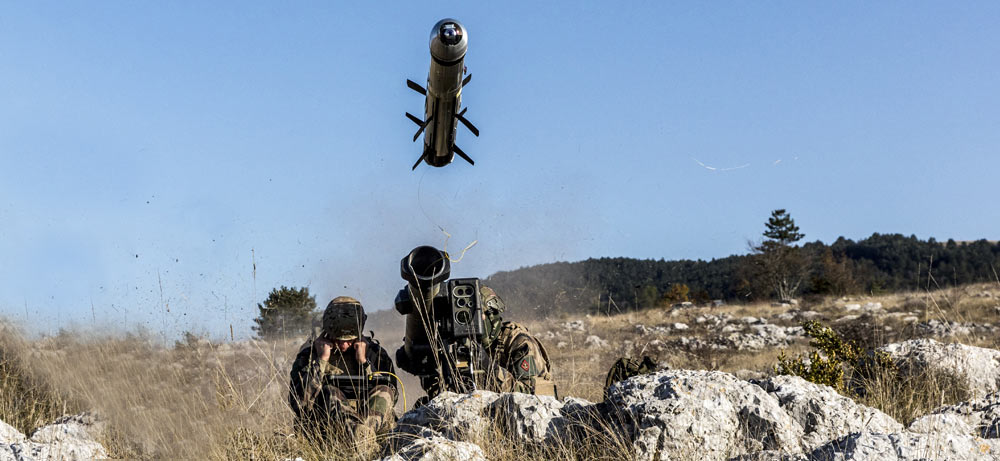Insensitive Munitions (IMs) are designed to significantly reduce the likelihood of inadvertent initiation, as well as the severity of the resulting reaction and any subsequent collateral damage caused by physical or mechanical stress. In addition to enhanced safety, IM systems continue to meet strict requirements in terms of performance, availability and operational conditions.
Roxel is a world leader in IM technologies and is actively developing innovative solutions. Roxel has proven expertise in designing propulsion systems that can withstand a wide range of potential hazards (i.e. bullet impact, cook-off scenarios, fragment impacts, sympathetic detonation, and drop testing).
Roxel’s expertise has led to the development of propulsion systems for the UK’s ASRAAM missile which holds the highest IM compliance rating of any missile currently in service.
Roxel is a member of the Insensitive Munitions European Manufacturers Group (IMEMG), and Roxel UK is a member of the MoD’s Joint IM Strategy Group.

Thrust modulation


Pulse Motors
Pulse motors offer the simplest method for achieving thrust modulation. The most commonly used type is the dual pulse motor. These are promising candidates for the next generation of missile systems.
Their key advantage lies in their ability to deliver multiple, mission-specific thrust pulses.
Thrust pulses are managed using multiple separate propellant charges, each isolated by a frangible bulkhead or flexible membrane, allowing them to ignite in sequence.
Discrete and Continuous Variable Thrust
Discrete and continuous variable thrust technology is an innovation delivering enhanced thrust modulation.
The key principle consists of on-demand, real-time thrust control by adjusting the variable throat area, which directly regulates the mass flow rate and, consequently, the thrust.
A future version of the continuous variable thrust will be used in conjunction with extinguishable propellants to enable full, on-demand thrust control, including stop and restart capabilities.
Thrust Vector Control (TVC)
Various TVC technologies have been used for decades (i.e. jetavator®, jet interceptors, jet vanes, flexible nozzles, etc.).
Current research is focused on reducing manufacturing costs, expanding operational temperature ranges, reducing mass and energy consumption, increasing maximum deflection angles, and transitioning from hydraulic to electrical actuators.
Divert and Attitude Control System (DACS)
Divert and Attitude Control Systems (DACS) are responsible for the final-stage manoeuvring of high-speed missiles launched to intercept fast-moving threats.
Current research on DACS shares similar goals with that of TVC. Next-generation systems will use advanced energetic materials and innovative temperature-resistant materials (such as ceramics) for valves and nozzles.
Soft Vertical Launch (SVL)
The SVL technique uses a combination of technologies, such as particle-free propellant charges and hot gas valves, to create a launch system that is compact, responsive, safe and reliable. This system enables precise control of the initial flight path of surface-launched
missiles.
Hybrid Propulsion
Roxel is also involved in the PERSEUS programme led by the French Space Agency (CNES).
This technology enables variable thrust by adjusting the fuel and oxidizer mass flow rates through a dynamic injection system. These capabilities show strong potential for future tactical missile applications.
Signature Control (stealth)
Roxel’s propulsion technologies enable the design of motors with optimised characteristics to meet the stealth requirements of missile manufacturers across the visible, UV and IR spectrums.
Different propellant formulations are available to meet specific requirements for solid propellant motor plume, focusing on reducing or eliminating primary and secondary smoke.
In addition, Roxel is able to adjust its system designs and select the most suitable inert materials to deliver the lowest observable signature possible.


Insensitive Munitions (IMs)
Every year, Roxel makes significant investments in both innovations for solid rocket motor technologies and motor and subassembly manufacturing processes. This is managed under an EN9100-certified internal innovation procedure which encompasses the collection and evaluation of new ideas, as well as project steering and evaluation..
These operations are carried out both internally and in collaboration with numerous partners: SMEs (e.g. NIMITECH), research institutions (e.g. CNRS, universities, ONERA) and major industrial groups such as MBDA, ArianeGroup, and Nexter).
The CW-ITP (Complex Weapons, Innovation and Technology Partnership) is a Dstl and DGA sponsored research framework open to all UK or French companies and Academic Institutions. IT focuses on low Technology Readiness Level (TRL) technologies.
Research and technology
Thrust control CW-ITP
As leader in the solid rocket propulsion sector, Roxel plays an active role in the Franco-British CW-ITP, which is research framework, jointly sponsored by DGA, MBDA and DSTL (Defence Science and Technology Laboratory).
Its goal is to develop a shared technology and industrial base for the next generation of European guided missiles through innovative, transnational solutions.
Roxel has put forward several research topics and is currently focusing on thrust modulation, thrust vectoring and their integration to develop more flexible and agile propulsion systems.
Energetic materials
Roxel contributes to research programmes on energetic materials through applied research programmes run by the French DGA and the UK MoD.
PERSEUS programme
Led by the French Space Agency (CNES), the PERSEUS student space research programme aims to encourage the development of innovative technical solutions across all launch system domains. It is primarily targeted at university students.
Roxel has been involved in the PERSEUS programme since 2006. Furthermore, we have been an industrial partner for hybrid propulsion research since 2009. As a recognised expert in propulsion and pyrotechnic systems, Roxel also advises CNES and participating students in the field of solid propulsion.
We are also responsible for conducting propulsion system tests.
